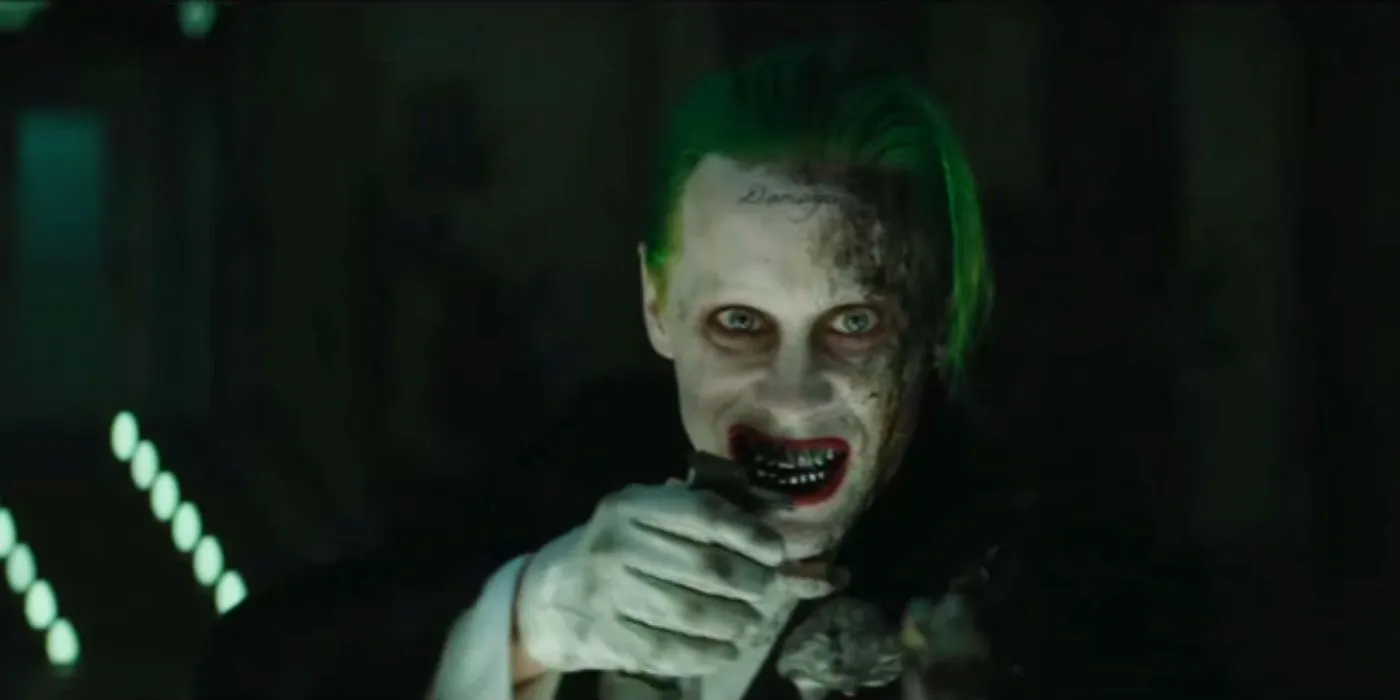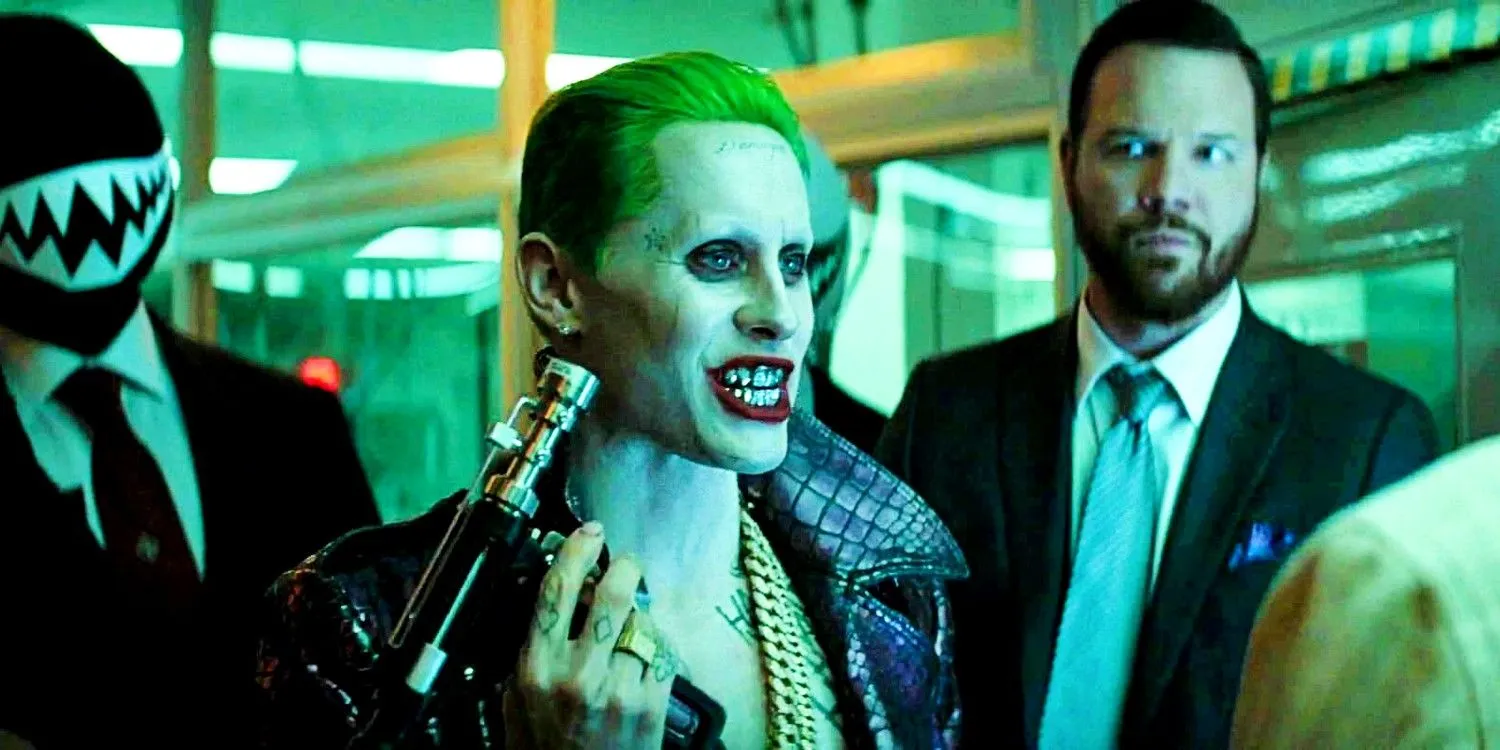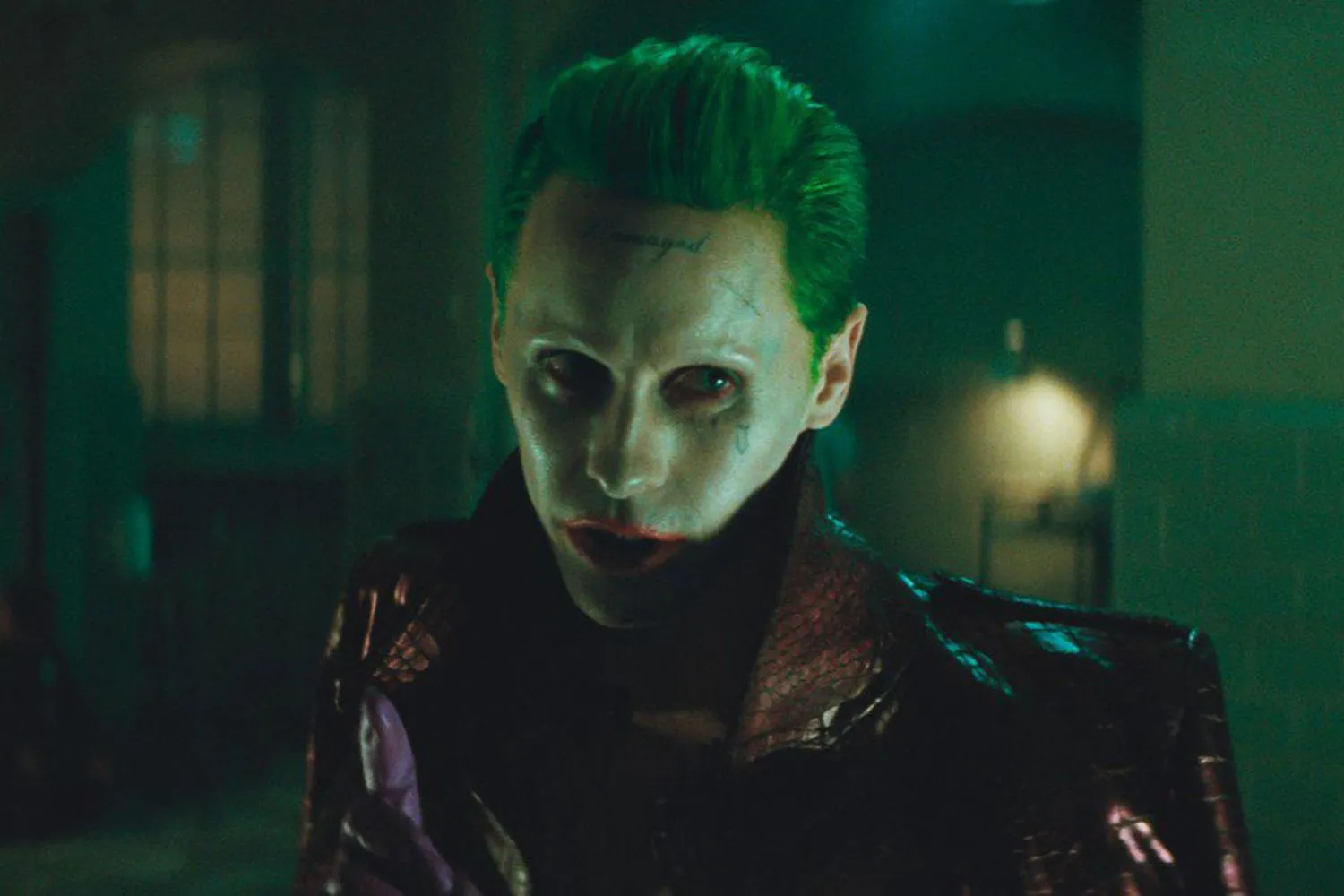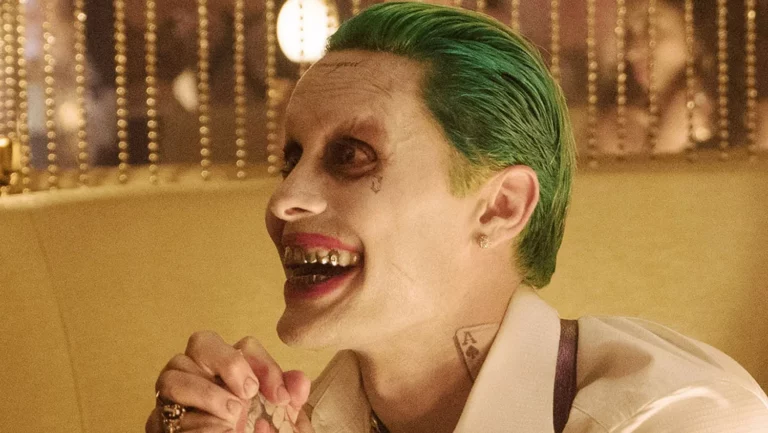In the labyrinth of comic book adaptations, the role of the Joker stands as a pinnacle of complexity and darkness, a character immortalized by Heath Ledger’s Oscar-winning performance in “The Dark Knight.” When Jared Leto took up the mantle in 2016’s “Suicide Squad,” expectations were sky-high. Leto, an Academy Award winner himself, promised a fresh and unhinged take on the Clown Prince of Crime. However, what followed was a storm of controversy and criticism, not just towards his portrayal but towards the studio’s handling of the film.

The Freedom to “Go to Town”
In an eye-opening interview with Variety, Leto disclosed the seemingly limitless creative freedom he was afforded during the filming of “Suicide Squad.” “There are very few characters that you play that have absolutely no rules, you know, that you could just go to town,” Leto remarked, hinting at an unrestrained, groundbreaking approach to his character. This statement not only showcased his dedication but also underlined the initial lack of restrictions in portraying one of DC’s most iconic villains.
Warner Bros.’ Role in the Joker’s Downfall
Despite the freedom Leto described, the final cut of “Suicide Squad” told a different story—a narrative evidently marred by heavy studio intervention. David Ayer, the film’s director, has been vocal about his dissatisfaction with the final version, revealing that much of his and Leto’s vision was clipped away by Warner Bros. This meddling is believed to have diluted the impact of the Joker, relegating Leto’s performance to a mere shadow of what might have been.
The backlash was immediate and brutal, with fans and critics alike dismissing Leto’s Joker as underwhelming, a sentiment that starkly contrasts with the actor’s vision and dedication to the role. This disconnect highlights a significant issue within major studios: the clash between artistic vision and commercial strategy, often resulting in a compromised product that satisfies neither the creators nor the audience.

A Glimmer of Redemption: The Director’s Cut
With David Ayer’s push to release a director’s cut of “Suicide Squad,” there emerges a flicker of hope that Leto’s true vision for the Joker might yet be understood and appreciated. Drawing parallels to Zack Snyder’s “Justice League,” which regained favor with fans following the release of Snyder’s cut, Ayer’s version could potentially vindicate both director and actor, revealing the depth and madness of Leto’s Joker that was intended to be a central element of the film.
The Future of the Joker and Studio Dynamics
As the debate around studio interference grows louder, the anticipation for Ayer’s director’s cut builds. This version could not only reshape perceptions of Leto’s Joker but also serve as a critical case study on the impact of studio involvement in creative projects. For Jared Leto, whose portrayal of complex characters has often garnered acclaim, this could be a moment of redemption, a chance to prove that his Joker was not just a misstep, but a misunderstood masterpiece stifled by corporate vision.

Warner Bros.’ handling of “Suicide Squad” has opened up broader discussions on the balance between creative freedom and studio demands. As Hollywood continues to navigate these turbulent waters, one hopes that the industry will learn from past mistakes, offering more respect and leeway to the artistic visions that drive cinematic innovation.
